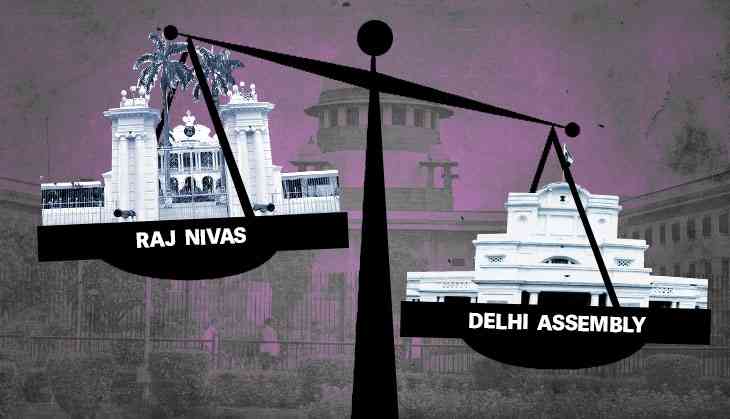Delhi LG vs CM case: SC ruling’s biggest irony lies in its stress over pragmatism

There is a critical irony in the Supreme Court’s judgment in the case over the power struggle between the elected government of Delhi and the Lieutenant Governor.
While the judgment is focused on a pragmatic interpretation of Constitutional provisions that govern Delhi’s administration, it, ironically, deals with the dispute only at theoretical levels.
While the ruling will settle many issues in the power struggle between the two constitutional authorities, the dust in the capital is not likely to entirely settle down, as of now.
There are many contentious issues that the judgment has not touched upon.
Delhi’s LG’s, of late, must have started thinking of themselves as some kind of imperial lords of the capital, as reflected in the conduct of the incumbent, Anil Baijal, and his predecessor, Najeeb Jung. They would lock horns with the elected government over decision after decision and proposal after proposal.
The significance of the ruling by the five-judge bench lies in the fact that it has unambiguously highlighted that the Delhi LG must never think of himself as some kind of an overlord of the territory. The LG must abide by the spirit of the Constitution, which entails him to “respect” the elected government and not adopt an obstructionist attitude towards it.
Look at the court’s pronouncements to understand this -
-
If a well deliberated legitimate decision of the Council of Ministers is not given effect to due to an attitude to differ on the part of the Lieutenant Governor, then the concept of collective responsibility would stand negated.
-
As opposed to centralism, a balanced federal structure mandates that the Union does not usurp all powers and the States enjoy freedom without any unsolicited interference from the Central government with respect to matters which exclusively fall within their domain.
-
The Lieutenant Governor has not been entrusted with any independent decision-making power. He has to either act on the 'aid and advice’ of Council of Ministers or he is bound to implement the decision taken by the President on a reference being made by him.
-
The Lieutenant Governor should not act in a mechanical manner without due application of mind so as to refer every decision of the Council of Ministers to the President.
-
The Lieutenant Governor must work harmoniously with his Ministers and must not seek to resist them every step of the way.
-
The “aid and advice” given by Council of Ministers as referred to in subclause (4) of Article 239AA is binding on the LG unless he decides to exercise his power given in proviso to subclause (2) of Article 239AA.
Significantly, the judgment has also ensured that the elected government must not misuse these assertions to completely bypass the office of the LG. The bench said unambiguously, that -
The elected representatives must display constitutional objectivity as a standard of representative governance which neither tolerates ideological fragmentation nor encourages any utopian fantasy, rather it lays stress on constitutional ideologies.
The Lieutenant Governor, being the Administrative head, shall be kept informed with respect to all the decisions taken by the Council of Ministers.
Under the Transaction of Business Rules, the Lieutenant Governor must be kept duly apprised on all matters pertaining to the administration of the affairs of the NCT. The Rules indicate the duty of the Council of Ministers to inform the Lieutenant Governor right from the stage of a proposal before it.
However, what has remained a grey area even after the ruling is with respect to which areas is the elected government free to take its decisions and merely keep the LG in the loop. Is the chief minister, for example, free to decide on postings of top bureaucrats in the capital, requiring to merely inform the LG?
Or, is the health minister free to open as many poly-clinics as the council of ministers approves of and merely let the LG know?
Or, is the home minister free to purchase CCTVs and get them installed all over the capital without seeking the concurrence of the union government through the LG?
Or, is the CM free to implement home delivery of key government certificates and services without seeking the LG’s nod?
These and many more similar questions remain unanswered even after today’s ruling.
Even the ruling admitted this shortcoming when it said that “it may not be possible to make an exhaustive catalogue of those differences which may be referred to the President by the Lieutenant Governor”.
Having said that, it must be added that these grey areas must not be allowed to overshadow the gravity of the landmark ruling. Political parties are prone to misuse the office of the LG when they are in power at the Centre.
What this ruling has done is to say it out clearly that even while the Centre, through the LG, does have powers over the capital’s administration, there is a line of decorum that must never be crossed.
The problem is that in adversarial politics, no lines except those clearly drawn are recognised.


